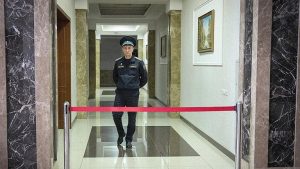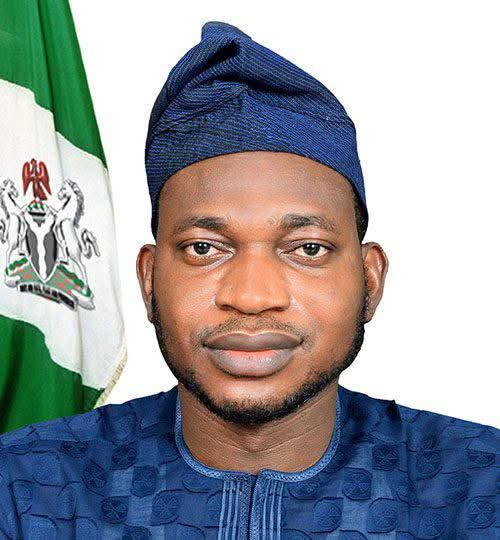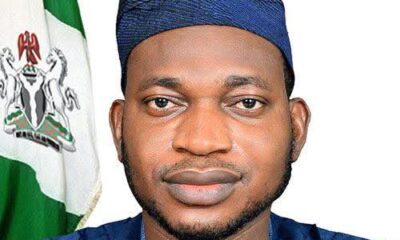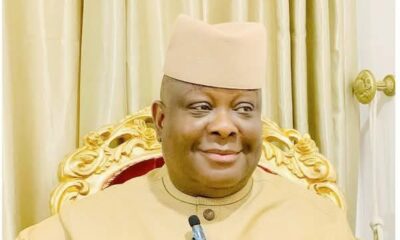News
Zelensky reveals one condition to give up territory as war intensifies

Ukrainian President Volodymyr Zelensky has been adamant that his country would not trade any territory in exchange for peace with Russia and Vladimir Putin, but recent remarks might be a sign that this blanket policy has changed.

A Russian Federal Bailiffs Service officer guards a corridor leading to a courtroom inside the court in Yekaterinburg, 18 July 2024
© AP Photo/Dmitri Lovetsky
In a rare public display of Russian secret agents, state television Russia-1 interviewed two former spies who returned to Moscow as part of the US-Russia prisoner swap.
Artem Dultsev and Anna Dultseva were posing as Argentinian citizens after settling in Slovenia in 2017. The duo reportedly used their residence in the Slovenian capital, Ljubljana, to travel to other NATO and EU member states.
In the interview, the Russian reporter presented a bag with stuffed toys to the children and asked their parents how to say “Cheburashka”, a character from Soviet and Russian cartoons, in Spanish.
Allegedly, the two children were not aware of their parents’ true identity and did not speak their native tongue.
In the interview, Dultseva explained how she similarly did not think or speak in Russian, and faced difficulty adopting the language back upon her return to Moscow.
The couple’s two teenage children lived in foster care after their parents’ arrest in 2022 and, according to Dultseva, were almost placed for adoption.
“We were threatened that the Argentinian side allegedly wanted to take our children. The children could be given to another family for adoption,” Dultseva said.
“But we felt that the Slovenian special services also did everything possible to keep the children in Slovenia to keep us together.”
Yashin: People’s support ‘my source of strength’
Meanwhile, one of the political activists released by the Kremlin, Ilya Yashin, thanked his supporters via a stream on his YouTube channel. He said he felt empowered after receiving around 30,000 letters and postcards and added: “it was literally my source of strength, because not a single day in prison did I feel abandoned, forgotten, or alone.”
The Russian activist previously admitted that he felt burdened by his release, as many of his comrades remain behind bars. Yashin spoke about the details of the prison swap and said that two more Russian dissidents should have been released as part of the deal.
“The Russian side deceived, betrayed their counterparts in the negotiations, leaving (Russian opposition activist Alexei) Gorinov and (associate of late Russian opposition leader Alexei Navalny, Daniel) Kholodny actually hostage,” Yashin said.
Yashin was imprisoned in 2022 for criticising Russia’s full-scale invasion of Ukraine. In his livestream, he vowed to stay committed to his anti-war position.
He added that he spoke to a German government official and warned, “if you allow Putin to devour Ukraine now, he will 100% move on. There are no illusions.”
Russia did not turn a corner, experts say
The prisoner swap between Russia and the West is the largest exchange since the Cold War, but the CEO of the Committee to Protect Journalists, Jodie Ginsberg, warned of the precedent it might set for future governments.
“Our concern is that this doesn’t set a precedent for future governments to feel that they can simply take innocent journalists, for example, imprison them and use them as bargaining chips for the release of, prisoners abroad.”
Ginsberg warns that the swap does not signify an improvement in press freedom in Russia. “This doesn’t mean that Russia has turned a corner or that Russia now suddenly has press freedom”.
She adds that the country was the fourth largest jailer of journalists worldwide in 2023, making it one of the most restrictive environments for journalists globally.
News
OWERRI MAGISTRATE COURT ORDERS REMAND OF 38-YEAR OLD IMO WOMAN OVER ALLEGED PEELING OFF MAID’S HAND, BURNING OF PRIVATE PARTS.

By Prince Uwalaka Chimaroke
18- DEC- 2025
A Magistrate’s Court sitting in Owerri, Imo State, has ordered the remand of a 38-year-old businesswoman, Juliet Igwe, at the Owerri Correctional Centre following allegations of severe abuse against a five-year-old girl under her care.
The defendant was arraigned by the Imo State Police Command on a one-count charge bordering on attempted murder, arising from accusations that the minor suffered serious injuries while in her custody at Oha, Ideato North Local Government Area.
A journalist and human rights advocate, Chidiebube Okeoma, who was present in court, disclosed that the matter was brought before the court by the Commissioner of Police, CP Aboki Danjuma. Okeoma, whose organisation, Stand For Humanity Foundation, rescued the child, stated that the prosecution alleged the offence is punishable under Section 320 of the Criminal Code applicable in Imo State.
During the proceedings, the police prosecutor, S.O. Obodo, informed the court that the offence carries a possible life sentence upon conviction and urged the court to remand the accused, noting that the Magistrate Court lacks jurisdiction to hear the substantive matter.
When questioned by the court, the accused reportedly admitted to the act but claimed she did not anticipate the extent of harm caused.
In her ruling, the Chief Magistrate, B.U. Adikibe, agreed with the prosecution that the offence is a serious felony beyond the court’s jurisdiction. She consequently ordered that the accused be remanded at the Owerri Correctional Facility and directed that the case file be forwarded to the Director of Public Prosecutions (DPP) for legal advice.
The court adjourned the matter to February 5, 2026, for an update on the DPP’s response.
The accused was not represented by counsel, while Miriam Ogbu appeared on behalf of the Imo State Ministry of Justice.
Also present in court was the Commissioner for Women Affairs and Vulnerable Groups, Lady Nkechi Ugwu, who assured that the matter would be escalated to the Wife of the Governor, Barrister Chioma Uzodimma, noting her interest in the protection of children and vulnerable persons.
The Stand For Humanity Foundation disclosed that it rescued the child on December 2 from Osina, Ideato North LGA, facilitated the arrest of the suspect, and ensured the minor was admitted to the Imo State University Teaching Hospital, Owerri, where she is currently receiving medical care.
Medical reports, according to the foundation, indicate that the child will require corrective medical procedures due to the injuries sustained. The organization reaffirmed its commitment to pursuing justice and ensuring the child’s full recovery and protection.
News
President Tinubu Reconstitutes the Board of the Nigerian Electricity Regulatory Commission

President Bola Ahmed Tinubu has approved the reconstitution of the Board of the Nigerian Electricity Regulatory Commission (NERC), following the Senate’s confirmation of its members on December 16.
Members of the reconstituted Board are:
• Musiliu Olalekan Oseni, PhD. — Chairman
Dr Oseni started his service as a Commissioner in January 2017. He was subsequently appointed Vice Chairman of the Commission.
His appointment as Chairman took effect from 1 December 2025 and shall subsist until the completion of his ten-year tenure at the Commission, in accordance with the provisions of the Electricity Act, 2023.
• Yusuf Ali, PhD. — Vice Chairman
Dr Ali was first appointed as a Commissioner in February 2022. His designation as Vice Chairman took effect on 1 December 2025 and shall remain in effect until the completion of his first term.
• Mr Nathan Rogers Shatti — Commissioner
Mr Shatti is serving a second term as commissioner. He was first appointed in January 2017.
• Mr Dafe Akpeneye — Commissioner
Mr Akpeneye is serving a second term, having been first appointed as a Commissioner in January 2017.
• Aisha Mahmud Kanti Bello — Commissioner
Aisha Bello is serving her second term, having been first appointed as a Commissioner in December 2020.
• Dr Chidi Ike — Commissioner
Dr Ike is serving his first term, having been first appointed as a Commissioner in February 2022.
• Dr Fouad Animashaun — Commissioner. Dr Animashaun is serving his first term, effective December 2025.
He is an energy economist with extensive experience in the Nigerian power sector and most recently served as Executive Commissioner and Chief Executive Officer of the Lagos State Electricity Regulatory Commission.
President Bola Ahmed Tinubu has charged the board members of NERC to deepen and consolidate the ongoing transformation of Nigeria’s power sector, in strict alignment with the letter and spirit of the Electricity Act, 2023.
Bayo Onanuga,
Special Adviser to the President,
(Information & Strategy)
December 18, 2025
News
Burkina Faso Releases Nigerian aircraft, Military Personnel After Tuggar Meeting

The Federal Government has confirmed the release of the Nigerian Air Force aircraft and 11 soldiers detained in Burkina Faso after a forced landing.

Confirming the development on Wednesday night, the spokesperson of the Ministry of Foreign Affairs, Mr Kimiebi Ebienfa, said the aircraft and personnel had been released.
He said, “Yes, they have been released.”

The confirmation came after the Minister of Foreign Affairs, Mr Yusuf Tuggar, on Wednesday met Burkina Faso junta leader, Mr Ibrahim Traoré, in Ouagadougou.
-
Business1 year ago
US court acquits Air Peace boss, slams Mayfield $4000 fine
-

 Trending1 year ago
Trending1 year agoNYA demands release of ‘abducted’ Imo chairman, preaches good governance
-

 Politics1 year ago
Politics1 year agoMexico’s new president causes concern just weeks before the US elections
-

 Politics1 year ago
Politics1 year agoPutin invites 20 world leaders
-

 Politics1 year ago
Politics1 year agoRussia bans imports of agro-products from Kazakhstan after refusal to join BRICS
-
Entertainment1 year ago
Bobrisky falls ill in police custody, rushed to hospital
-
Entertainment1 year ago
Bobrisky transferred from Immigration to FCID, spends night behind bars
-
Education1 year ago
GOVERNOR FUBARA APPOINTS COUNCIL MEMBERS FOR KEN SARO-WIWA POLYTECHNIC BORI













